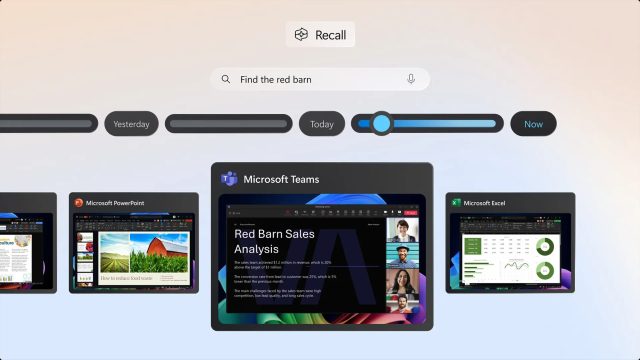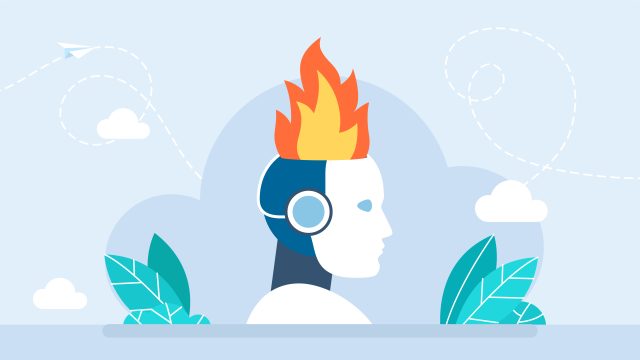Microsoft Windows AI is watching

A screenshot of Microsoft’s new “Recall” feature in action. Credit: Microsoft
In an era where many people already feel like they have no privacy due to tech encroachments, Microsoft dialed it up to an extreme degree in May. That’s when Microsoft unveiled a controversial Windows 11 feature called “Recall” that continuously captures screenshots of users’ PC activities every few seconds for later AI-powered search and retrieval. The feature, designed for new Copilot+ PCs using Qualcomm’s Snapdragon X Elite chips, promised to help users find past activities, including app usage, meeting content, and web browsing history.
While Microsoft emphasized that Recall would store encrypted snapshots locally and allow users to exclude specific apps or websites, the announcement raised immediate privacy concerns, as Ars senior technology reporter Andrew Cunningham covered. It also came with a technical toll, requiring significant hardware resources, including 256GB of storage space, with 25GB dedicated to storing approximately three months of user activity. After Microsoft pulled the initial test version due to public backlash, Recall later entered public preview in November with reportedly enhanced security measures. But secure spyware is still spyware—Recall, when enabled, still watches nearly everything you do on your computer and keeps a record of it.
Google Search told people to eat rocks

This is fine. Credit: Getty Images
In May, Ars senior gaming reporter Kyle Orland (who assisted commendably with the AI beat throughout the year) covered Google’s newly launched AI Overview feature. It faced immediate criticism when users discovered that it frequently provided false and potentially dangerous information in its search result summaries. Among its most alarming responses, the system advised humans could safely consume rocks, incorrectly citing scientific sources about the geological diet of marine organisms. The system’s other errors included recommending nonexistent car maintenance products, suggesting unsafe food preparation techniques, and confusing historical figures who shared names.
The problems stemmed from several issues, including the AI treating joke posts as factual sources and misinterpreting context from original web content. But most of all, the system relies on web results as indicators of authority, which we called a flawed design. While Google defended the system, stating these errors occurred mainly with uncommon queries, a company spokesperson acknowledged they would use these “isolated examples” to refine their systems. But to this day, AI Overview still makes frequent mistakes.
